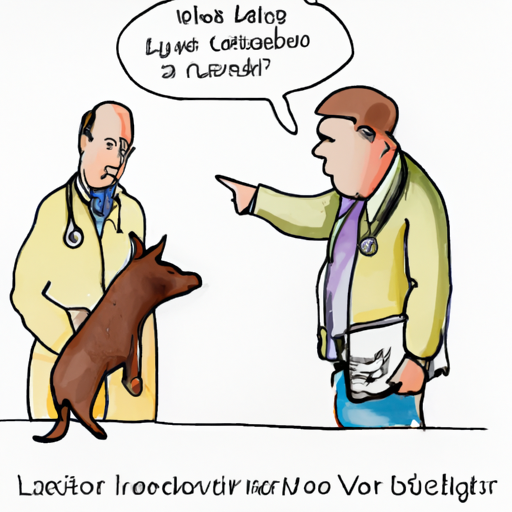Understanding the Liver Functions in Dogs
The liver plays a crucial role in your dog’s health. It’s responsible for detoxifying the body, producing essential proteins, and storing vitamins. Like in humans, it’s a resilient organ that can regenerate itself. However, when it starts to enlarge, it’s often a sign that something isn’t quite right. You, as a caregiver, need to know what might be causing this abnormality.
Common Causes of an Enlarged Liver in Dogs
There are several reasons why your dog’s liver may become enlarged. Here are the most common causes:
- Hepatitis: This is an inflammation of the liver caused by a viral infection, toxins, or an autoimmune disorder.
- Cirrhosis: This is a chronic disease that replaces healthy liver tissue with scar tissue.
- Cushing’s Disease: This is a condition caused by an excess production of cortisol by the adrenal glands.
- Liver Tumors: These can be benign or malignant, but both types can cause the liver to enlarge.
- Congestive Heart Failure: This is a condition where the heart doesn’t pump blood as well as it should, which can lead to fluid buildup in the liver, causing it to enlarge.
Symptoms of an Enlarged Liver in Dogs
You might have noticed that your canine companion isn’t quite themselves. Here are some signs that might indicate a problem with their liver:
- Loss of appetite
- Lethargy or fatigue
- Swollen abdomen
- Jaundice (yellowing of the skin, eyes, and gums)
- Unexplained weight loss
- Increased thirst and urination
Diagnosing and Treating an Enlarged Liver
Diagnosing an enlarged liver involves a series of tests. Your vet will likely perform blood tests, ultrasounds, and potentially a biopsy. Once a diagnosis has been made, the next step is treatment. This is often tailored to the underlying cause of the enlargement. For instance:
| Underlying Cause | Treatment |
|---|---|
| Hepatitis | Antibiotics, anti-inflammatory medication, and supportive care |
| Cirrhosis | Dietary changes, medications, and in severe cases, a liver transplant |
| Cushing’s Disease | Medication to control cortisol production |
| Liver Tumors | Surgery, chemotherapy, and/or radiation therapy |
| Congestive Heart Failure | Medication to improve heart function and reduce fluid buildup |
Frequently Asked Questions
Q: Can diet cause an enlarged liver in my dog?
A: Yes, a diet high in fats can lead to a condition called hepatic lipidosis, which can cause the liver to enlarge.
Q: Is an enlarged liver painful for dogs?
A: It depends on the cause. In some cases, such as tumors or severe inflammation, it can be very painful.
Q: Can an enlarged liver be cured?
A: The prognosis depends on the underlying cause. Some conditions can be managed with medication and dietary changes, while others may require surgery.
By understanding the symptoms and being proactive about your dog’s health, you can ensure they receive the care they need. Remember, regular vet check-ups are key in catching any potential issues early. Your fluffy friend is counting on you!



